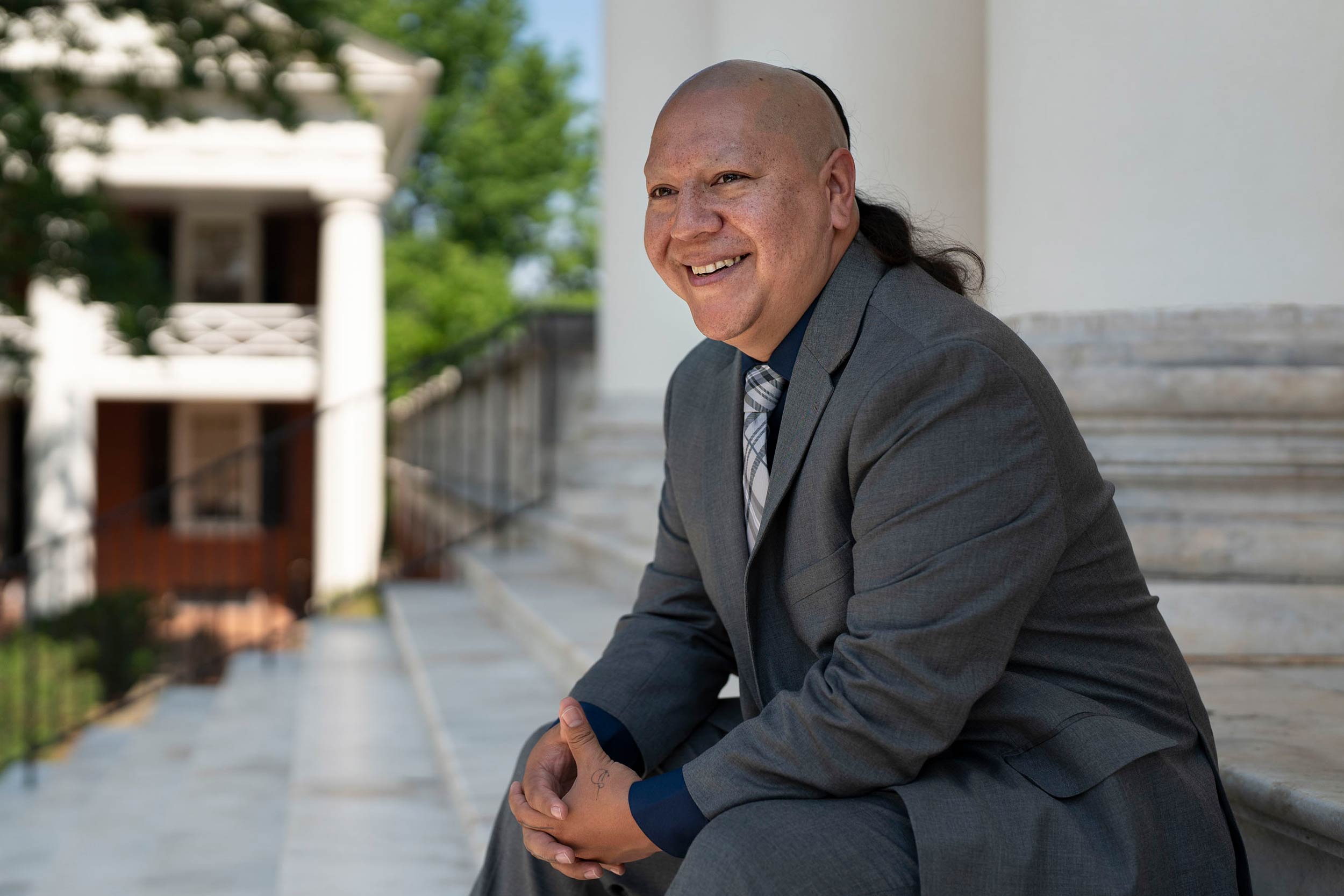When Kody Grant got the job offer, he wept.
Grant didn’t expect to be the tribal liaison at the University of Virginia. A self-described nontraditional learner, he earned his GED and then an associate’s degree in his 30s. He worked as an actor and interpreter in Colonial Williamsburg, helping its foundation decide how to cover Native American history.
After each round of interviews for the UVA job, he told himself he was glad to have the chance to talk to University faculty and staff. If it went any further, that was great. If it didn’t, at least he had the experience.
Great won out.
“I’m very honored and privileged to have the opportunity,” Grant said. “My earnest hope is that I can do this work to such a degree that it does other folks justice.”
The role as tribal liaison formalizes work Grant previously did at Colonial Williamsburg where he reached out to citizens of other tribes independently, working to get what they wanted and needed from the foundation.
“I found this passion for being the background person. I didn’t want to be on stage anymore,” he said.
The UVA position has been in the works for several years, said search committee co-chair and assistant professor of environmental science Lauren Miller, a citizen of the Choctaw nation. As tribal liaison, Grant will be the go-between for the University and Virginia tribes.
“This is a chance for us to be a resource hub for tribes, however the tribes need it,” Miller said.
Members of the UVA community have long worked to highlight Indigenous voices and include them at the University. But historically, UVA faculty and staff members have performed the duties of a tribal liaison on an ad hoc, volunteer basis.
Grant’s task is to help build relationships with local Native American groups, work with Indigenous students who want to come to UVA, help develop curriculum and work in consultation with tribes on issues such as research on Indigenous lands and with Indigenous peoples. He will act as an “information broker,” helping people inside and outside of UVA communicate with each other.
Grant will also be a “point person” for faculty, staff, students and alumni, someone they can turn to with questions on tribal matters.










